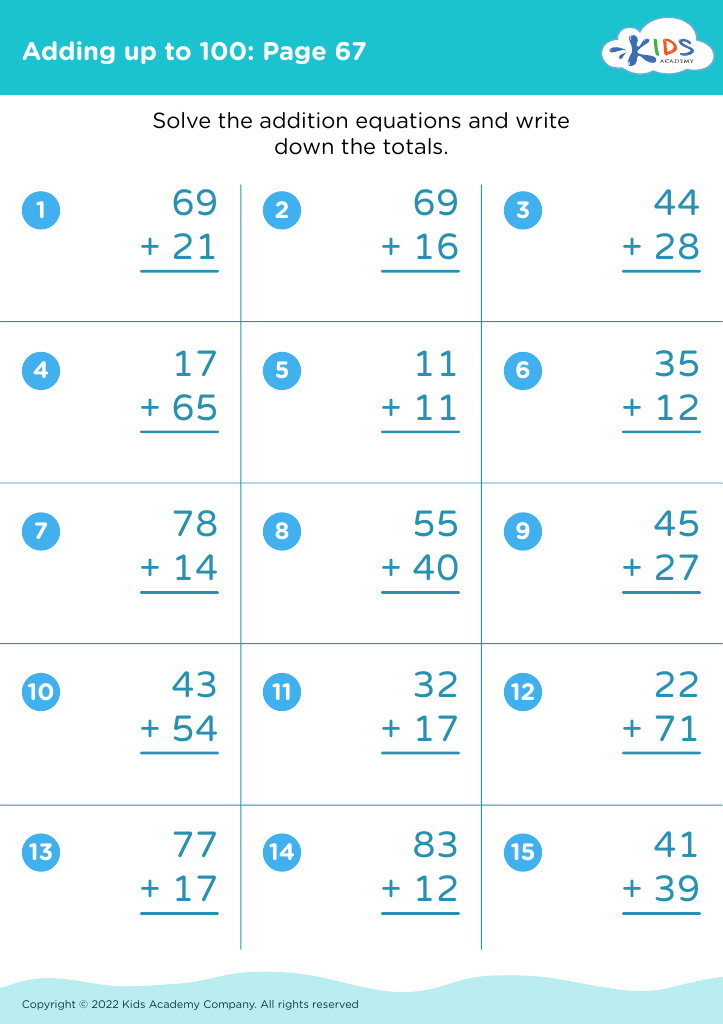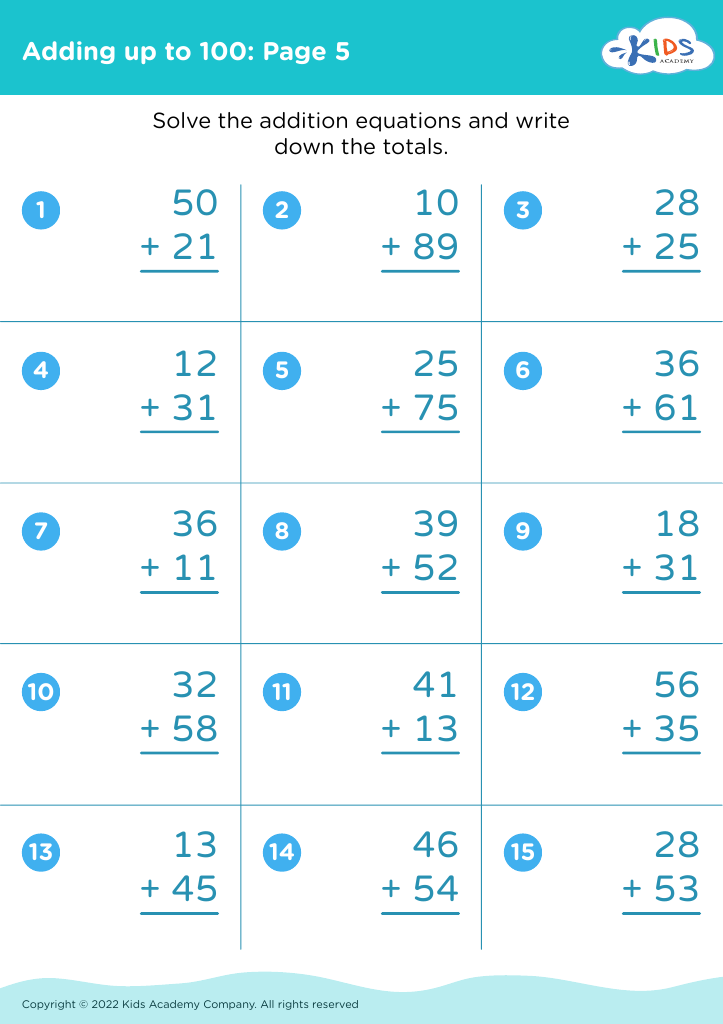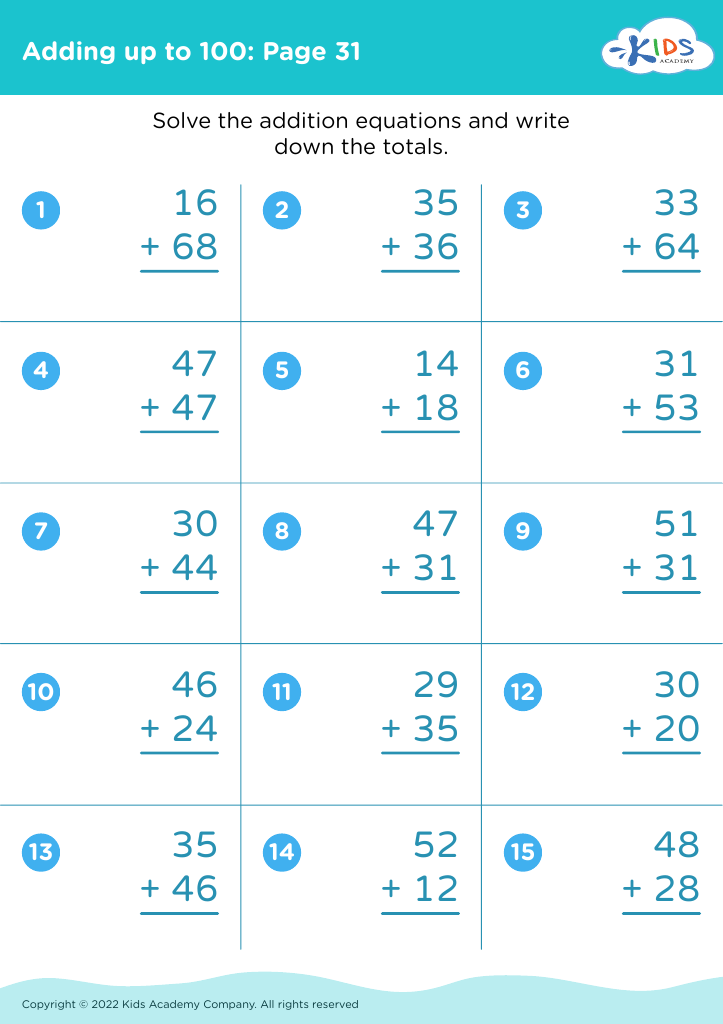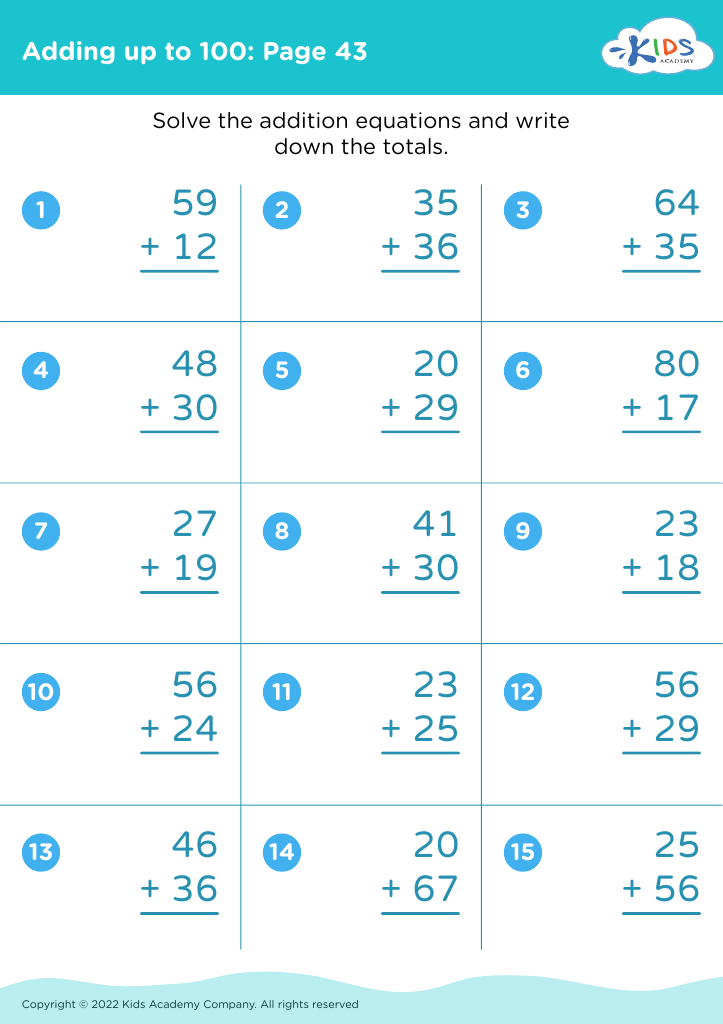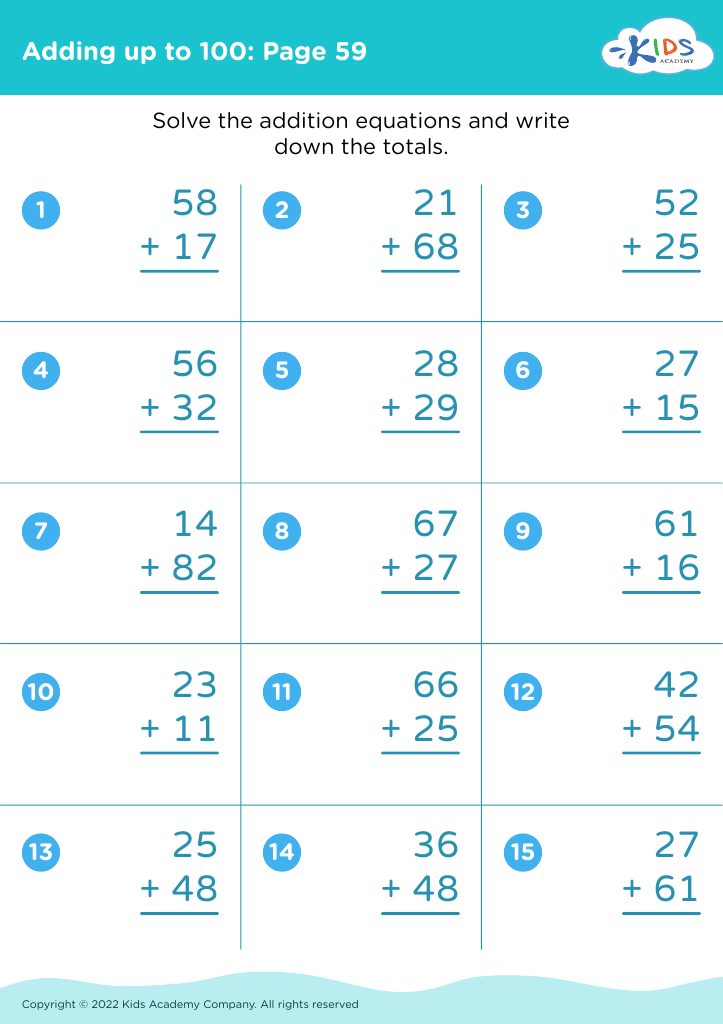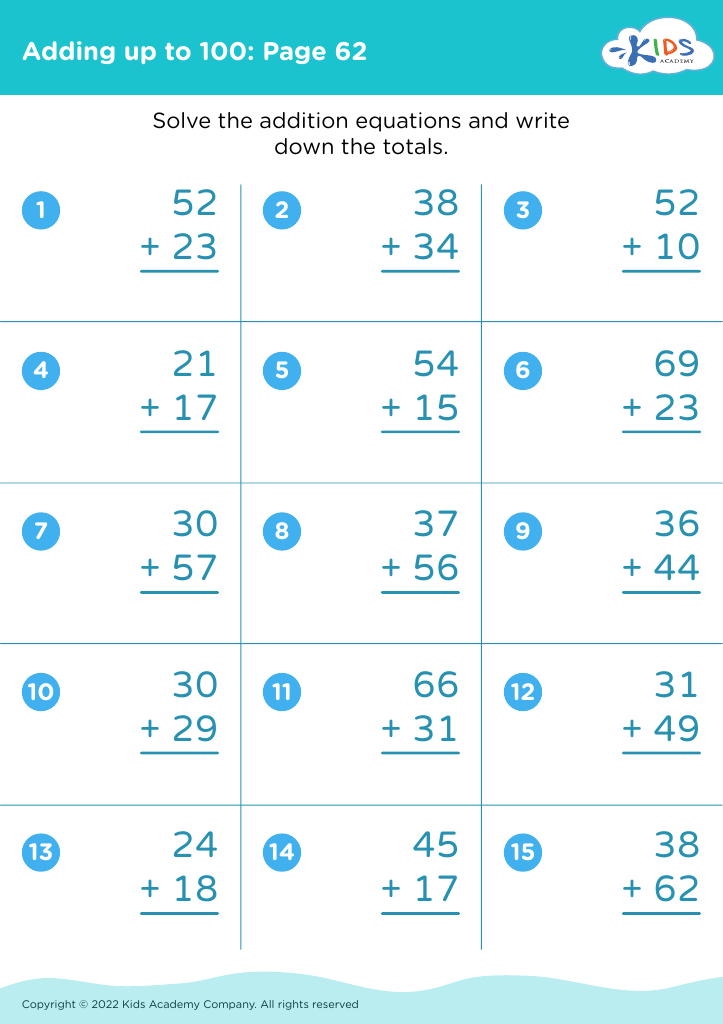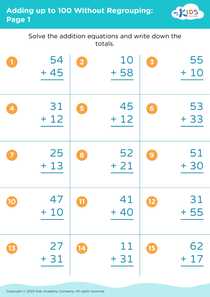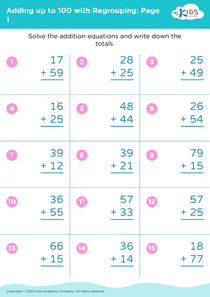Understanding patterns Adding up to 100 Misc Worksheets for Ages 3-7
6 filtered results
-
From - To
Explore our "Understanding Patterns: Adding Up to 100" miscellaneous worksheets designed for children aged 3 to 7. This engaging collection focuses on building foundational math skills through fun and interactive activities. Kids will discover various patterns while mastering the concept of addition up to 100. Each worksheet encourages critical thinking and enhances cognitive abilities, making learning enjoyable and effective. Our resources promote pattern recognition, number sense, and problem-solving skills, ensuring a comprehensive understanding of math concepts. Perfect for classroom environments or home practice, these worksheets are an excellent way to support early learners on their mathematical journey! Download now and spark curiosity!
Understanding patterns and the concept of adding up to 100 are foundational skills that lay the groundwork for a child’s mathematical understanding. For children aged 3-7, engaging with these concepts fosters critical thinking and problem-solving abilities. Recognizing patterns helps children see relationships between numbers, which is essential for learning addition and subtraction, as well as more advanced math topics in the future.
By understanding that numbers can form patterns, children can build their number sense, enabling them to navigate through mathematical challenges with confidence. Moreover, the concept of adding up to 100 introduces them to the idea of whole numbers, particularly through grouping and counting, which can simplify complex problems and enhance mental calculation skills.
Parents and teachers should care because early mastery of these skills can lead to increased academic success and a positive attitude toward math. This early understanding can also improve readiness for later concepts, such as place value and arithmetic operations. Furthermore, nurturing these skills through fun activities tailored to these age groups encourages curiosity and a love for learning. In a world increasingly driven by analytical thinking, equipping young learners with early mathematical skills sets a strong foundation for their future educational journeys.
